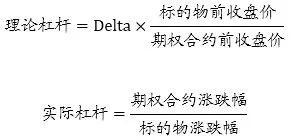|
|
Okay, so I need to figure out what Amazon tokenized stock is. Let me start by breaking down the terms. Tokenized stock probably refers to shares of a company that are represented as digital tokens instead of traditional share certificates. I remember hearing about blockchain and cryptocurrencies, so maybe this has something to do with using blockchain technology to represent shares.
First, I should understand what tokenization means in this context. Tokenization is the process of converting physical or intangible assets into digital tokens on a blockchain. So, instead of holding a physical stock certificate, you hold a digital token that represents ownership. That makes sense. But how does this work with a company like Amazon?
Amazon is a publicly traded company, so its stock is already traded on the stock market. Tokenized stock might be a way to allow investors to buy fractions of shares through a digital token, which could be easier for smaller investors. Maybe it's similar to how some apps let you invest in stocks with small amounts of money. But using blockchain here could add benefits like security, transparency, and maybe even easier international trading.
Wait, but Amazon's stock is already on NASDAQ. So tokenized stock from Amazon would be a separate entity, right? Or is Amazon itself issuing tokenized shares? I think some companies issue their own tokens for different purposes, like governance or equity. For example, Tesla has a token offering for their energy products. But stock tokenization would mean the tokens are directly tied to equity in the company.
I should check if Amazon has done anything like this. A quick search shows that Amazon hasn't officially launched tokenized stock, but there are discussions about the possibility. Tokenized stock could be part of a broader trend in decentralized finance (DeFi) and decentralized autonomous organizations (DAOs). The tokens could be traded on decentralized exchanges, which might reduce fees compared to traditional stock exchanges.
Another aspect is security. Blockchain's immutability could prevent fraud and enhance record-keeping. Also, fractional ownership through tokens might make it easier for more people to invest. But there are challenges too. Regulatory issues come to mind. The SEC in the US has strict rules about securities, and tokenizing stocks might require compliance with those regulations. There's also the risk of market manipulation if the token is traded on less regulated platforms.
Tax implications are another consideration. How are tokenized stocks treated for tax purposes? Are they considered the same as regular stocks, or different because they're digital tokens? This could affect how investors report gains and losses.
Then there's the technical side. The tokens would need to be backed by actual shares, so there's a question of how the conversion between tokens and shares works. Is there a smart contract involved that automatically adjusts the token value based on the share price? Or is it a separate tracking mechanism?
Also, adoption is a factor. Even if Amazon issues tokenized stock, would investors trust it? The reputation of Amazon is strong, but introducing a new tokenized form of their stock might face skepticism. Plus, the infrastructure for trading and managing these tokens needs to be robust.
I should also consider examples from other companies. For instance, companies like Ford have explored tokenized shares, and there are platforms like t0.com that offer tokenized stock. These platforms tokenize shares and allow trading on their exchange, which might be more accessible than traditional methods.
In summary, Amazon tokenized stock would likely be a digital representation of ownership in Amazon, allowing for easier fractional ownership, international trading, and potentially lower fees. However, regulatory hurdles, security concerns, tax implications, and market adoption are significant factors that would need to be addressed.
Amazon tokenized stock refers to the representation of Amazon's ownership shares as digital tokens on a blockchain, enabling fractional ownership and decentralized trading. Here's a structured overview:
Key Features:
Tokenization Process:
Digital Representation: Shares are converted into tokens (e.g., on Ethereum or Solana), tracked via smart contracts.
Fractional Ownership: Allows investors to purchase small fractions of shares, democratizing access to Amazon's equity.
Benefits:
Accessibility: Lower entry barriers for international and retail investors.
Reduced Costs: Potential for lower transaction fees compared to traditional exchanges.
Transparency: Blockchain's immutability enhances security and auditability.
Global Trading: Eliminates geographical restrictions, enabling 24/7 trading on decentralized platforms.
Challenges:

Regulatory Compliance: Requires adherence to securities laws (e.g., SEC regulations in the U.S.), which may restrict tokenization.
Market Manipulation: Risk of volatility in decentralized markets without strict oversight.
Tax Complexity: Uncertain tax treatment of digital tokens vs. traditional stocks.
Adoption Risks: Skepticism from investors and infrastructure challenges in managing tokenized shares.
Technical Considerations:
Smart Contracts: Automate share valuation and distribution based on real-time stock prices.
Interchangeability: Tokens must be backed by actual shares, ensuring redemption mechanisms.
Examples & Platforms:
t0.com: Tokenizes stocks like Apple and Tesla, facilitating trading on its exchange.
Ford Tokenization: Explored tokenized shares for easier governance and ownership.
Regulatory and Strategic Considerations for Amazon:
SEC Compliance: Likely hurdles in classifying tokens as securities, necessitating regulatory approval.
Brand Risk: Potential skepticism if perceived as experimental or less secure.
Infrastructure: Requires robust systems for token issuance, trading, and customer support.
Conclusion:
While tokenized stock could enhance Amazon's accessibility and efficiency, significant regulatory, technical, and market challenges must be navigated. Success would depend on Amazon's strategic adoption, regulatory alignment, and investor trust in the blockchain ecosystem.
|
|